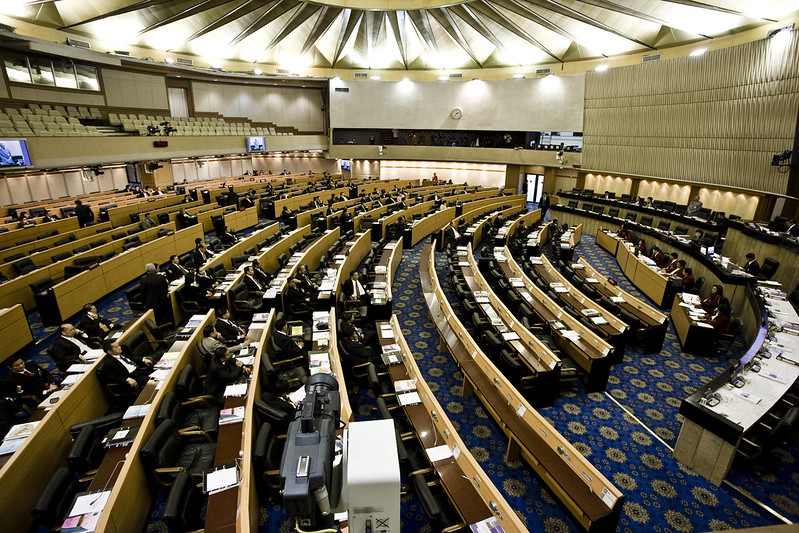Bangkok, coalition rejects pro-military proposal for national unity government
The alliance between Pita Limjaroenrat's Move Forward, Shinawatra's Pheu Thai and other smaller forces lacks the votes of 66 members of the (military-controlled) Senate to have a majority in parliament after winning the May 14 vote. The specter of a new coup by the generals in case a government is not reached within the 60-day deadline. Meanwhile, the Defense Council proposes streamlining the armed forces to regain consensus.
Bangkok (AsiaNews) - The coalition that emerged victorious from the May 14 vote today rejected a proposal for a national unity government in case of a new political crisis. A move that came from the Senate, which is unelected and controlled by the military that appointed its 276 members.
The United Thai Nation, Pheu Thai and Move Forward parties and three minor allies won a landslide victory over the pro-military and pro-monarchist parties by winning 310 seats out of 500 in the lower house of parliament but not full control.
In fact, they will have to count on the support of at least 66 senators to reach the 376 votes needed to be able to designate the next prime minister at the end of the 60 days given to the Election Commission to verify the results.
Hence Senator Jadet Insawang's move to propose a form of compromise with the winners, which would avoid any search for new alliances with the risk of plunging the country, which has not had a government capable of leading it since 2006 except with the approval of the elites and the armed forces, or with the constant threat of being dissolved by judicial action or intervention by the generals' rights, back into chaos.
Thus, in May 2014, it was that a junta led by General Prayuth Chan-ocha, since 2019 head of the government designated by the Palang Pracharat he co-founded, came to power, only to switch-at last elections-to a new pro-military group.
Any alliances with opponents by the winning parties will be contingent on Move Forward's attempt to create a cohesive executive or, secondarily, on the second party as consistency, Pheu Thai.
The two groups are aware that any other alternative (e.g., an alliance of Pheu Thai with historic military opponents) would betray the clear choice of the voters to create an alternative to the armed forces' control of politics. On the other hand, a weakening of the alliance without some association to the power of the generals could incentivize a new coup action justified as in the past by the "need" to safeguard the unity of the country.
Also an element of contention between the two camps-but also an obstacle to extending the majority to other smaller groups-is the role of the monarchy, which Move Forward would like to review, prompted by movements over the years that have called for clarification of the institution's role and its relationship to the forces that actually hinder Thailand's social and democratic growth.
In anticipation of what could be a new and perhaps different involvement of the armed forces in the running of the country, but also to speed up a reform process that is underway but stalled, the Defense Council today proposed its own plan for streamlining and modernizing the armed forces.
In the absence of real external threats, the size and cost of the military apparatus of 400,000 men with 1,200 generals (more than twice that of the U.S. military) has long been a lever in the public opinion campaign that seeks to return the men in arms to their constitutional role and relinquish their grip on the country by relinquishing privileges and control of lucrative economic activities.
Photo: Flickr/Abhisit Vejjajiva
07/02/2019 17:28







.png)










